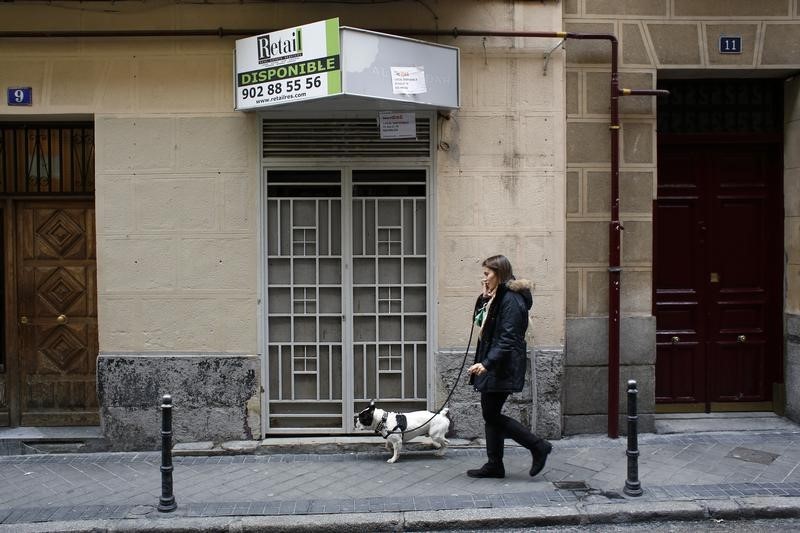By Jonathan Cable
LONDON, July 24 (Reuters) - Euro zone business activity started the second half on a less secure footing than expected, even with continued price cutting, as euro weakness failed to boost export demand, a survey showed on Friday.
The purchasing managers' index (PMI), one of the earliest monthly economic indicators, could dampen hopes that European Central Bank bond-buying and the tumbling euro are boosting growth and driving inflation higher.
Greece's brush with bankruptcy meant July was a turbulent month for the euro zone, however, and Chris Williamson, chief economist at survey compiler Markit, said the readings could have been worse.
"Amongst all that tension, the fact it has held up at a reasonable rate of growth is pretty encouraging," Williamson added. "More recently there have been positive developments so we may see some upturn in growth next month."
Athens has now accepted conditions imposed on it by its international lenders and on Thursday parliament approved asecond package of reforms required to start talks on a financial rescue deal.
Markit's Composite Flash Purchasing Managers' Index, based on surveys of thousands of companies and seen as a good guide to growth, fell to 53.7 this month from June's four-year high of 54.2. A Reuters poll had predicted a more modest dip to 54.0.The headline index has nevertheless now been above the 50
level that separates growth from contraction since mid-2013.
Williamson said the data provisionally pointed to third quarter growth of 0.4 percent, slightly weaker than the 0.5 percent predicted in a Reuters poll published on Thursday.
Second quarter growth is forecast at 0.4 percent. [ECILT/EU] But as they have since early 2012, firms cut prices, although only slightly this month. The output price index rose to 49.9 from June's 49.4 and with input costs rising for a fifth month it could move above 50 in August.
Despite the discounting, a PMI covering the bloc's dominant service industry fell to 53.8 from June's 54.4, well short of expectations for 54.2, while a factory PMI also missed the median forecast for no change, dipping to 52.2 from 52.5.
An index covering manufacturing output, which feeds into the composite PMI, nudged down to 53.4 from 53.6.
The euro
the whole union crashing down. That has made the bloc's goods cheaper abroad but done little for demand.
"The weak euro is not bringing all the benefits that everyone was hoping for ... but on the other hand there is very weak demand in many parts of the world," Williamson said.
The manufacturing export orders index fell to a five-month low of 51.8 in July from 52.7.
The business expectations index -- which measures service firms' optimism about the year ahead -- was at its lowest point this year, plummeting to 61.5 from 63.0.
